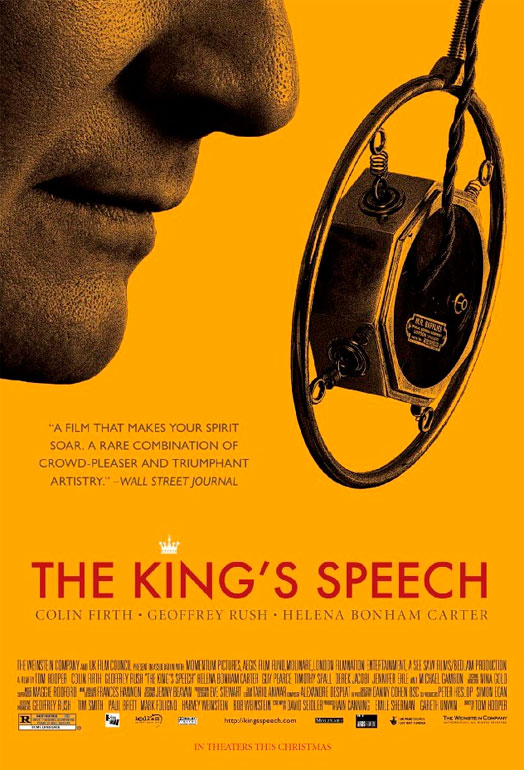Cinema is a powerful medium and the film ‘The King’s Speech’ bears testimony to this fact. Directed by Tom Hooper, with a stellar cast including Colin Firth, Geoffrey Rush, and Helena Bonham Carter, the film provides a vivid portrayal of King George VI‘s struggle with his stammer.
The narrative unravels itself in a manner that seizes immediate attention, portraying Prince Albert’s (later known as King George VI, played magnificently by Colin Firth) struggle with his stutter amid the rigorous demands of his royal position. This deeply intimate film is not an ostentatious portrayal of royalty but instead unveils the human essence of a king tackling his speech impediment, humanizing a figure we’ve often known confined within the bounds of official portraits or history books.
The dynamic interaction between the main characters – Bertie (as King George VI preferred to be called) and Lionel Logue, his speech therapist effectively played by Geoffrey Rush – forms the backbone of this drama. Their slowly growing friendship is depicted beautifully amidst a thorny path of hardships, making the audience revel in its unfolding.
Firth does a remarkable job inhabiting the character of Bertie. He portrays his agony, fear, anger, frustration, and eventual triumph with supreme authenticity, never slipping into an overdrawn caricature of a stutterer. He allows you to feel the sting of each debilitating stutter, making you root for him and share his triumphs, however minute they may be.
Equally impressive is Rush’s portrayal of Lionel Logue, an eccentric and warm speech therapist, who through unorthodox methods and immense patience, successfully aids Bertie in overcoming his hindrance. The camaraderie displayed by Rush makes the doctor-patient relationship hugely appealing, pushing the plotline beyond the usual historical drama.
Helena Bonham Carter, in her role of Queen Elizabeth, portrays a doting wife who stands like a rock behind her husband in his difficult times. Her character acts as a hope catalyst, anchored with strength and tenderness. Carter effortlessly switches between the roles of a queen and a supportive wife, making her character a pivotal part of the narrative.
The screenplay beautifully blends historical authenticity with raw emotional storyline. The scene where Bertie finally addresses the nation in war-time is emblematic of everything great about this film – the tense build-up, the masterful performances, and the culmination that leaves you teary-eyed, all superimposed against the backdrop of a historically strenuous moment.
Hooper’s innovative direction bolsters the film significantly. His choice of close-ups and unconventional camera angles intensifies the drama and captures the raw emotions with an unparalleled finesse. The subtle symbolism scattered throughout the film, like a repressed Bertie against the vast and imposing walls of his royal estates further illustrates his genius.
Technically, the film is a marvel. The art direction and set design impeccably recreate the feel of the period, enlivening the narrative. Sound mixing, an often overlooked aspect of films, here plays a significant role, altering the environment for each of Bertie’s speeches and effectively intensifying the drama.
The musical score invigorates the narrative with its soul-stirring melodies and wisely moderated intensity. The compositions by Alexandre Desplat emotionally align with the journey of the king, making the film an experience to cherish.
However, ‘The King’s Speech’ is not just about speech therapy or kingship. At its heart, it’s a profound tale of an individual fighting against his personal handicap, with the courage to change, and the willpower to form unlikely alliances. It is a potent reminder of how human spirit and resolve can surpass any adversity.
‘The King’s Speech’ is a masterpiece that manages to humanize royalty, while portraying a unique and inspirational human journey. An authentic historical saga festooned with refined performances, brilliant screenplay and exceptional direction – it is a stunning salute to the strength of the human spirit. Surely, this stutterer’s struggle to kingship is a triumph that will echo in the annals of cinematic history.



